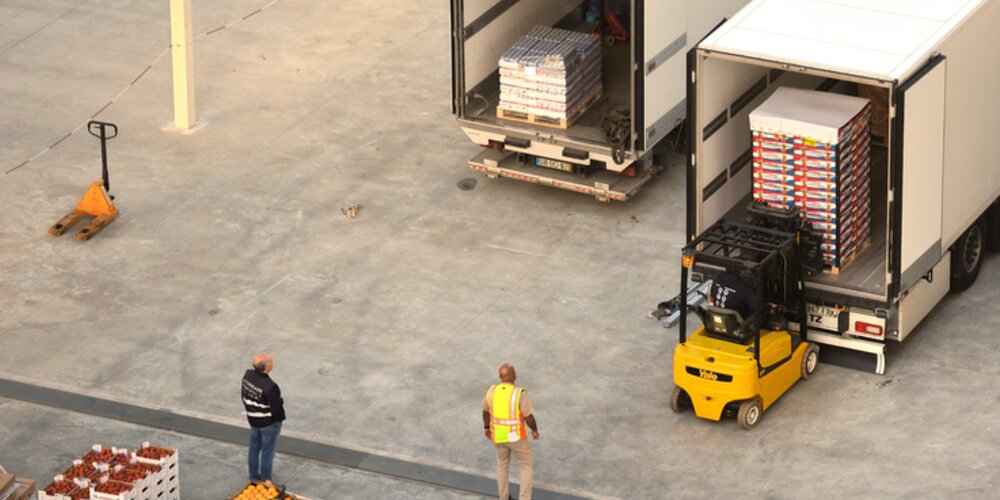Brexit: guidance for freight forwarders

While all supply chain stakeholders will be affected by the now fast approaching end to the Brexit transition period, freight forwarders and logistics providers might need to consider the impact more than most. Attention is required not only for movements in each direction between Great Britain (GB) and the European Union (EU), but also those shipments to, from and through Northern Ireland.
Recognising that the modern international freight forwarder or logistics provider will undertake a diverse range of activities, due consideration will need to be given as to how the changes that will take effect at the point the transition period ends at 2300 hrs GMT on 31 December 2020 are going to impact their operations. The freight forwarder holds a unique position in the supply chain contracting with multiple stakeholders including the shippers, who might be responsible for the import/export of goods, and haulage companies, who might undertake cross border or final mile delivery. Managing the complexities across a range of disciplines will require robust processes and good preparation to ensure that the efficiency and integrity of existing supply chains is maintained.
Given the complexities introduced by Brexit, freight forwarders should consider reviewing their insurance options, such as the Forwarders Cargo Cover, to ensure comprehensive protection.
Engage with customers
Freight forwarders will need to ensure that they engage now (if the process has not already started) to discuss and understand any potential challenges that they might face. Are your customers fully aware of the potential impact, are they aware of what the changes could mean for their current business model and are they considering contingencies in the event of a process not working post 1 January 2021?
INCOTERMS
INCOTERMS are an important factor in the context of the upcoming changes. These internationally used rules define the responsibilities of the buyer and the seller, including import and export declarations and the payment of duty. While freight forwarders are not party to the agreed INCOTERMS between the seller and buyer of goods, it might become more important for the freight forwarder to understand the underlying terms of sale in order to address potential challenges that could arise. Engaging and sharing expertise could alleviate delays and issues at the border as well as managing potential liabilities.
Existing trade practices
Recognising that many workers will not have experience making declarations for intra-European trade, the environment from 1 January 2021 risks being an unfamiliar one. Existing trade practices may simply no longer be practical or legal. Under DDP (Delivery Duty Paid) terms for instance, there must be an importer of record established in GB for goods exported from the EU to GB. If the shipper is unable to act as the importer of record, they have two options:
- Establish their business in the country of import
- Obtain a VAT and EORI number and appoint a fiscal representative.
It may be prudent to check with your customer that these requirements are understood - whether they are established in both the export and import countries, or if they need to reconsider the underlying sales terms or even their existing corporate structure?
Similarly, for EXW (Ex Works) shipments from EU to GB, the GB buyer would be responsible for arranging collection and exporting the goods from the EU to GB. Such a business will likely need to be established in the EU to do so. Alternative INCOTERMS could alleviate these challenges; DAP (Delivered at Place) or FCA (Free Carrier) for instance could serve to overcome the challenges discussed above. However, thought is certainly required ahead of 1 January to resolve these potential issues.
Preparing for delays
Delay at the border may also be a consideration for you and your customers. Understanding the importance of ensuring for example that all goods are correctly declared, that corresponding documentation exists, that declarations are made and, where relevant, licences and/or certificate of origin obtained, will be pivotal. Additional complexities have the potential to arise where groupage consignments are concerned. An issue with just one consignment amongst hundreds could hold the entire trailer/container up at the border - potentially affecting numerous customers, who may seek to recover any losses from you.
Additional services
Freight forwarders today provide a range of additional services for their customers, beyond the simple arranging of carriage from collection to delivery. Customs declarations are certainly amongst such services and many who may not have undertaken these tasks historically are likely to view the upcoming changes as a business opportunity, a means of diversification to meet a new demand. There is great importance in understanding the scope of your role and in what capacity you act on behalf of your customer when making any such declarations; errors and inaccuracies can be very costly both financially and commercially.
Engagement with your customer will assist in defining roles and expectations in respect of potential liabilities. Are you for instance acting as a direct or indirect representative? While acting as an indirect representative may be uncommon for freight agents, if these services are new to you, you need to be fully aware of the implications and liabilities that could attach. Is your customer familiar with the declarations, the requirements, and the importance of accuracy? While some shippers will have been sending goods around the world for many years - and therefore be familiar with the general process - for businesses used to intra-European transactions, these processes could be entirely new. Acting in the capacity of a customs agent, how confident are you that your customer understands what is required and is in a position to provide you the information you require? Direct representation might be less burdensome in terms of liability for the freight forwarder, however if problems occur, there exists the potential for commercial friction, so preparation is a key consideration.
Engage with contractors
Looking in the other contractual direction, many freight forwarders will not operate their own vehicles or warehouses. Consequently, there exists a reliance on a network of sub-contractors to fulfil your contractual obligations towards your customer. Each of these sub-contractors will themselves be impacted by the approaching changes. It is important therefore to engage with your contractors, to safeguard your existing supply chain options and to ensure so far as reasonably practicable that you can continue to meet service level agreements with your customers.
Understanding the responsibilities your sub-contractors face
There are a host of changes for the haulage community to consider, including licencing, driver availability and permits. In the UK, hauliers will need to have a Kent Access Permit to enter the approach to the main RoRo port(s) of departure for international journeys. For those exporting or importing goods through GB, access to the Goods Vehicle Management System will be required to ensure smooth transit. While there is not currently full clarity, cabotage will be another potential consideration. A sound understanding of your end-to-end supply chain is of great importance in ensuring you have confidence that your current access to services will not face disruption. For example, is the company you routinely sub-contract haulage to, sub-contracting further to a haulier that might face challenges to their current operating model from 1 January 2021?
Regulation changes for certain materials
Freight forwarders and logistics providers may also act in the capacity of procuring certain materials for their customers. Of particular interest as we reach the end of the transition period will be wooden products. Pallets, crates, dunnage and any other wooden products will need to meet ISPM15 standards from 1 January 2021. Engaging with your current suppliers would be prudent to ensure that they are aware of the changes and that they are positioned to meet your expectations. Inspections are likely in both GB and the EU to ensure compliance to such changes; experience in other countries suggests that non-compliance could be very costly in delays, reworking and procurement of replacement wooden products.
- Author
- Mike Yarwood
- Date
- 03/12/2020





